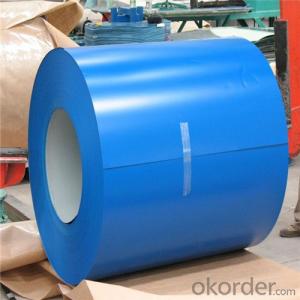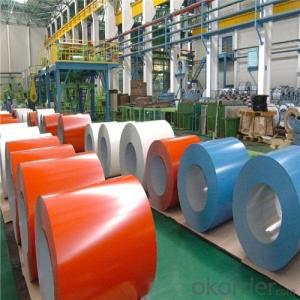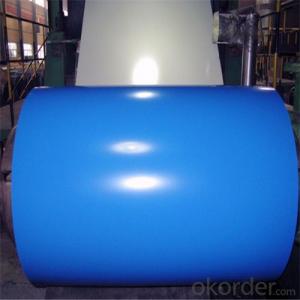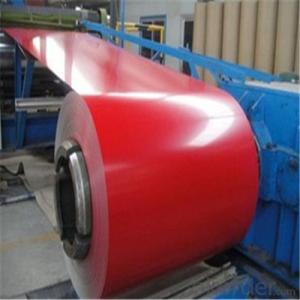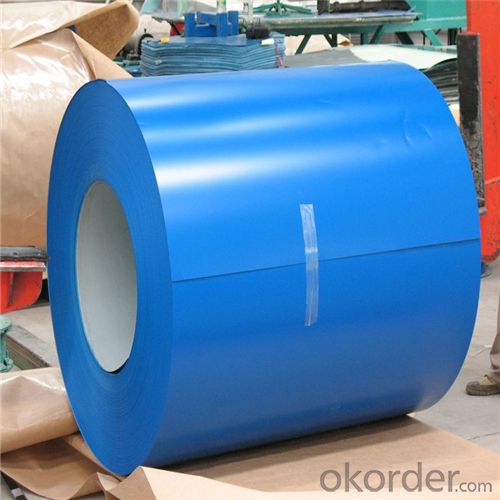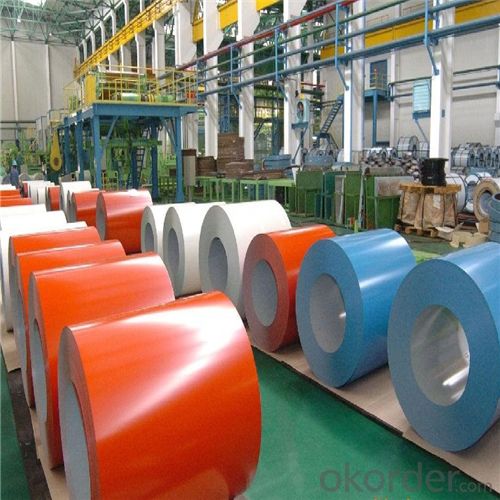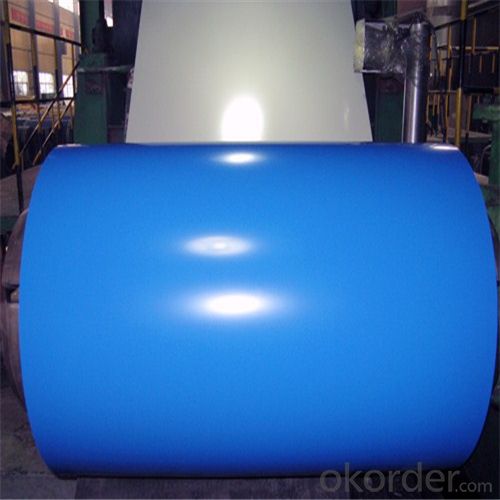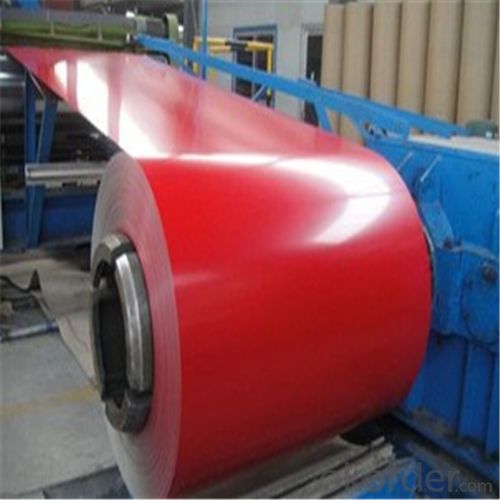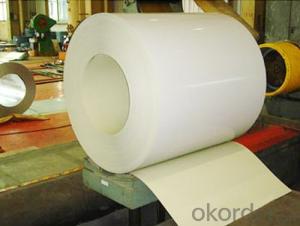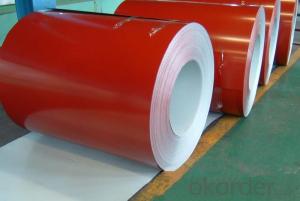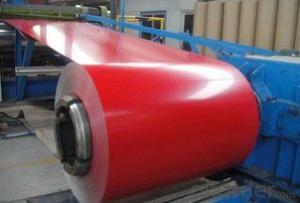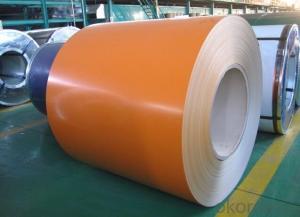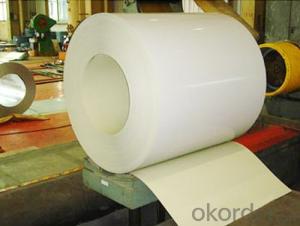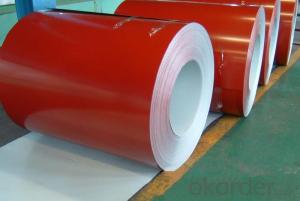Pre-painted Galvanized Steel Coil with Competitive Price
- Loading Port:
- Tianjin
- Payment Terms:
- TT OR LC
- Min Order Qty:
- 50 m.t.
- Supply Capability:
- 5000 m.t./month
OKorder Service Pledge
OKorder Financial Service
You Might Also Like
Pre-painted Galvanized Steel Coil Used for Industry
1.Structure of Pre-painted Galvanized Steel Coil Description
With GI as base metal, after pretreatement and liquid dope with several layers of color, then after firing and cooling, finally the plate steel is called pre-painted galvanized steel. Pre-painted galvanized steel is good capable of decoration, molding, corrosion resistance. It generally displays superior workability, durability and weather resistance.
2.Main Features of Pre-painted Galvanized Steel Coil
•High Purity
•Easy control and operation
•High strength
•Fast melting
•Competitive price
•Best Service
3. Pre-painted Galvanized Steel Coil Images
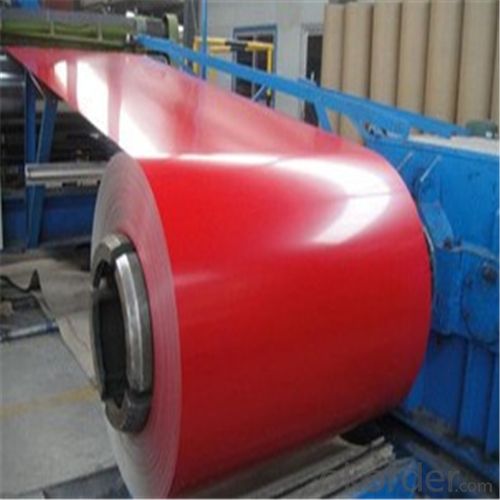
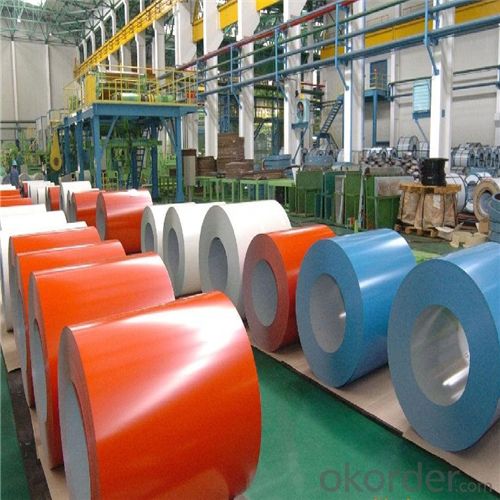
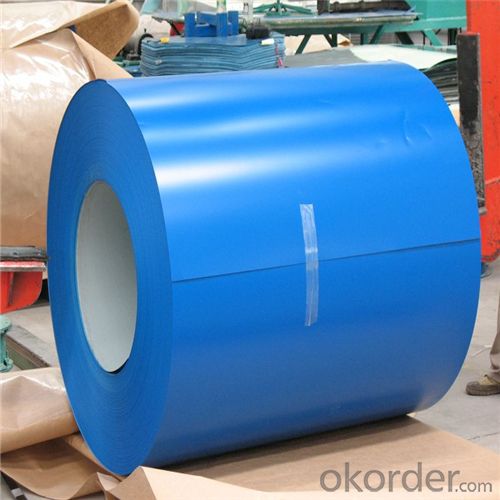
4. Pre-painted Galvanized Steel Coil Specification
Pre-painted Galvanized Steel Coil | |
Thicknenss | 0.18mm-1.5mm |
Width | 900-1250mm |
Coating mass | 30-275g/㎡ |
Paint | PE, PVDF, PU |
Color | RAL Scale |
Coil weight | 3-7mt |
Coil inner diameter | 508 or 610mm |
5.FAQ of Hot-Dip Galvanized Steel Coil
We have organized several common questions for our clients,may help you sincerely:
①How about your company?
A world class manufacturer & supplier of castings forging in carbon steel and alloy steel,is one of the large-scale professional investment casting production bases in China,consisting of both casting foundry forging and machining factory. Annually more than 8000 tons Precision casting and forging parts are exported to markets in Europe,America and Japan. OEM casting and forging service available according to customer’s requirements.
②How to guarantee the quality of the products?
We have established the international advanced quality management system,every link from raw material to final product we have strict quality test;We resolutely put an end to unqualified products flowing into the market. At the same time, we will provide necessary follow-up service assurance.
③How long can we receive the product after purchase?
In the purchase of product within three working days, We will arrange the factory delivery as soon as possible. The pecific time of receiving is related to the state and position of customers.Commonly 7 to 10 working days can be served.
- Q: What are the common methods of packaging steel coils for international shipping?
- The common methods of packaging steel coils for international shipping include using wooden crates or pallets, securing the coils with metal or plastic strapping, using moisture-resistant packaging materials, such as plastic or shrink wrap, and adding dunnage or cushioning materials to prevent movement or damage during transit. Additionally, steel coils may be packed in containers or onto flat racks for optimal stability and protection.
- Q: How can defects in steel coils be detected?
- Defects in steel coils can be detected through various methods such as visual inspection, ultrasonic testing, magnetic particle inspection, eddy current testing, and radiographic testing. These techniques help identify surface defects, internal flaws, cracks, or any other abnormalities that may affect the quality and strength of the steel coils.
- Q: I'm buying a new set of steel plugs.I've heard things about streched ears and cold weather not being to good. do you think it would be bad to be wearing steal plugs?
- I have never had a problem with mine in any weather. They may feel a little tighter if you are cold, but if it is uncomfortable, just take 'em out!
- Q: Eutectoid Steel
- Eutectic steel is used to produce pearlite, bainite, spheroidite and martensite steels. Those steels vary in strength, hardness and ductility. One uses martensite steel for example in razor blade manufacturing. Of course there is no end to the various uses of these steels.
- Q: ok I got a dpms ar 15 and all i have put though it is good brass 223 ammo but is it ok to shoot the old crappy steel cased wolf ammo out of it will it hurt its function or will it hurt it cosmetically?
- I won't run steel through my Ar-15,why spend $700-$1200 on a rifle to run some cheap steel case **** in it? That is what an ak or sks is for.
- Q: What other metal is used to make rings? My girlfriend is allergic to stainless steel, but she wears a silver/grayish color ring, but I'm not sure what metal it is. Any ideas? Thanks!
- silver, white gold, and platinum match the color of stainless steel the best. they last long, too ;)
- Q: How are steel coils protected from condensation?
- Steel coils are protected from condensation by applying a layer of corrosion-resistant coating, such as zinc or a polymer, on the surface. This coating acts as a barrier, preventing moisture from coming into direct contact with the steel and reducing the chances of condensation occurring. Additionally, steel coils are often stored in controlled environments with controlled humidity levels to further minimize the potential for condensation.
- Q: Explain why a steel nail sinks but a steel ship floats.
- A steel nail is much denser than the water. That means that it weighs more than an equivalent volume of water. Therefore, the buoyancy is never going to be enough to hold it up. Whether it is a big steel nail or a small one, it will always be too dense for the water to support it. Because of its shape, a steel ship is not as dense as water. It is not made out of a solid block of steel. Instead, the hull is built of thin plates of steel enclosing an open space. A steel ship is sort of like an empty cup. Although its sides are hard and dense, it holds a lot of air in the middle. Since air weighs almost nothing, it lowers the overall density of the ship to a point where its buoyancy exceeds its weight, and the ship floats. Think of it as you trying to sink a balloon.
- Q: I'm quite confused...i watched all of steel angel kurumi (the 28 episodes) and then continued to steel angel kurumi zero. it was an entire different story line with only the steel angels being the same. the world is different the guys are different, and there is a new character. Even the humor is gone. its like a whole different series. So what gives, what is the relationship between them?
- Steel Angel Zero is an OVA (Original Video Animation), a very short animation that went straight to DVD. It probably was written because Kurumi was so popular, and the producer wanted to check the waters for whether they should make a second season. It's pretty hard to keep track of what anime is which, especially in the more popular series. If you think Zero is worth zero, try Steel Angel Kurumi 2 (anime, 12 episodes), and Steel Angel Kurumi Encore (OVA, 4 episodes) as well.
- Q: ...particularly for jewelry?
- Steel Reserve (211) the beer...drink responsible...never drive when U had a few Oh I had my ring stolen at a bar It was stainless silver...PeAcE
Send your message to us
Pre-painted Galvanized Steel Coil with Competitive Price
- Loading Port:
- Tianjin
- Payment Terms:
- TT OR LC
- Min Order Qty:
- 50 m.t.
- Supply Capability:
- 5000 m.t./month
OKorder Service Pledge
OKorder Financial Service
Similar products
Hot products
Hot Searches
Related keywords
